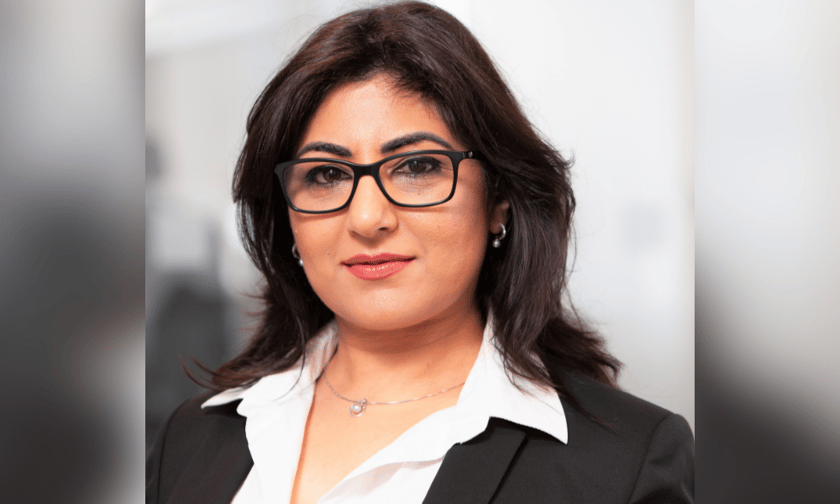

A chemical engineer by background, Suzan Pardesi, head of energy at Africa Specialty Risks, is well acquainted with what it means to be the only woman in the room. Her first foray into insurance was as an engineering analyst with the Hartford Steam Boiler, where she was the only woman on its engineering team at the time. From there, she moved between roles in engineering consultancy and insurance, joining the XL team in 2008 as a senior risk engineer.
“At the time, I was the only female oil and gas engineer in the London market, and a woman of colour as well, so it was quite challenging, to say the least,” she said. “Six and a half years later, I joined Navigators, which was then bought out by The Hartford, where I spent six years as a senior energy underwriter before I subsequently joined ASR in 2020. I’ve been here for four years now and it’s safe to say, I now see a lot more women in the industry from the time that I started.”
Having been on the journey of being a woman in a very male-dominated environment, Pardesi said it has been great to see the changes that have occurred over the years – and an honour to play a role in helping to change the conversation about women in insurance.
Initiatives such as the Dive In Festival have gone a long way to moving the industry forward, she said, and in helping to create a healthier work environment for the next generation. Part of what makes Dive In so special is that it has spent a decade now looking to promote inclusive workplace cultures in insurance businesses all around the globe. “The industry has faced so many challenges and it’s now subsequently facing a lot more in the form of emerging risks such as climate change and cybercrime.
“Therefore, it needs to adapt to attract top talent. And to do so, the insurance sector needs to be seen as a great career option by embracing a wide range of diversity – including gender, age and culture – but also things like mental health and disability. In a nutshell, Dive In supports diversity, equity and inclusion, not just as a business requirement but as a pivotal factor in long-term success on a personal as well as a professional level.”
Dive In has proven a critical tool in helping to tackle gender and age-related biases, in fostering mentorship opportunities, and in promoting fairness and inclusion by building a more equitable workplace for all. Dive In’s mission is to contribute to a future where everyone has equal opportunities, Pardesi said, but from her perspective, its most important legacy is how it helps insurance professionals leave “a lasting legacy of positive change for the next generation. They shouldn’t have to go and reinvent the wheel, and go through everything we’ve been through. And Dive In is helping to make sure they won’t have to.”
What has been especially interesting to see is how conversations about and attitudes towards DE&I have evolved. She noted that when she started her career in the late 90s, the focus of DE&I was on the basics of representation. That became more comprehensive in the early 2000s when DE&I efforts were very compliance-driven and focused on increasing representation, particularly of previously underrepresented groups including women and ethnic minorities.
“It was progress but it was more about meeting legal requirements and focusing on the number rather than on how those individuals were integrated into the workplace and the workplace culture,” she said. “So, by around the mid-2000s, I think organisations, particularly in insurance, began to realise that a tick box exercise just wasn’t sufficient. That was when conversations started to shift towards inclusion and creating environments where diverse employees felt valued and included in decision making.”
The evolution accelerated in the 2010s with movements including Black Lives Matter and #MeToo shining a spotlight on the more systemic nature of racism, sexism and other forms of discrimination. This forced organisations to look deeper into the structural issues that enabled inequality, she said. And post-2020, a lot of the focus is on the need for companies to actively combat systemic issues, rather than simply promoting diversity passively.
“But the biggest change has really come from the accountability of individuals and companies,” Pardesi said. “Companies are being asked to publicly report on their progress on DE&I goals, including on pay equality, leadership and diversity of representation at all levels within an organisation. This is really needed to make long-term meaningful changes that address the causes of inequality within organisations.
“Added to all that, is also the increased focus on wellbeing. There’s a deeper understanding of what inclusion actually means and how it includes mental health, neurodiversity, and a more holistic view of wellbeing. The idea of belonging has become more central, where everyone in the organisation, regardless of their background, feels accepted and valued.”
A Sustainable Future: The Next 10 Years - #DiveIn2024
